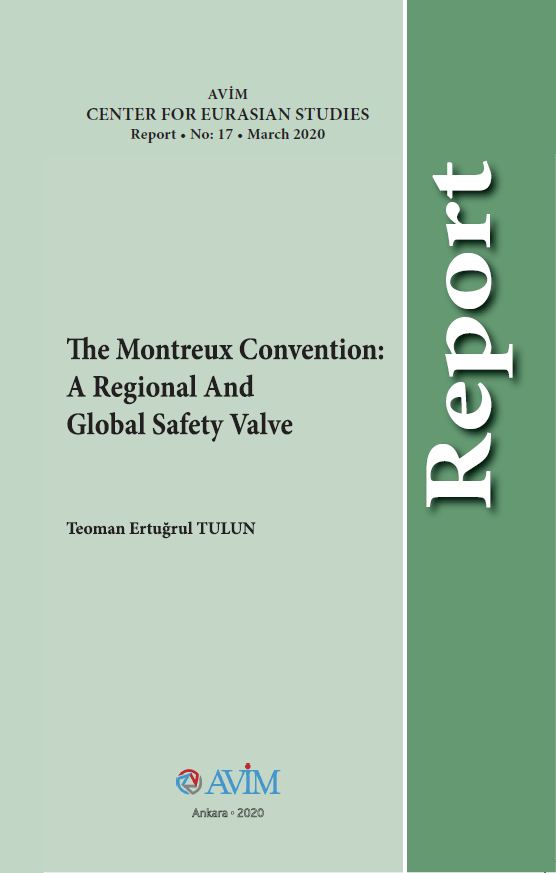THE REPORT TITLED 'THE MONTREUX CONVENTION: A REGIONAL AND GLOBAL SAFETY VALVE' HAS BEEN PUBLISHED
Download PDF :


The Center for Eurasian Studies (AVİM) has been continuing its work in the framework of the Eurasia concept that covers Europe and Asia. In this general context, AVİM particularly focuses on the Balkans, the Caucasus, the Wider Black Sea Region, the Caspian basin, and Central Asia.
There is no doubt that developments in the Black Sea region have come to the fore in recent years, particularly with regard to security issues in the wider Black Sea area. The existence of peace, stability, and security in the Black Sea region is of great importance not only for the Black Sea littoral countries but for Europe and beyond as well. The Turkish Straits of the Bosphorus and the Dardanelles bring together the Europe and Asia and in fact form a natural border between and conjunction point of the two continents.
The Bosphorus and the Dardanelles are strategically a vital link between the Black Sea and Mediterranean Sea. Their control has historically been an important issue for Europe and wider Eurasia. The Montreux Convention Regarding the Regime of the Straits of 1936 endowed Turkey with full control of the Turkish Straits. Throughout those years, the Convention has maintained its validity and importance.
This AVİM report authored by AVİM Analyst Teoman Ertuğrul Tulun which was published in March 2020 with the title “The Montreux Convention: A Regional and Global Safety Valve” explains the historical background of the regime of the Turkish Straits until the Montreux Convention, incorporates detailed analysis of the core articles of the Convention, dwells on the current developments in today’s crisis-ridden world that bring the Convention to renewed prominence, and suggests that Montreux Convention continues to be a functional regional and global safety valve for today's world.





























